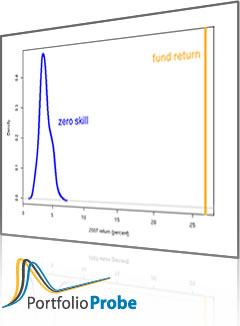Follow us using:
Newsletter Sign-up
Monthly Archives: July 2011
More S&P 500 correlation
Here are some additions to the previous post on S&P 500 correlation. Correlation distribution Before we only looked at mean correlations. However, it is possible to see more of the distribution than just the mean. Figures 1 and 2 show several quantiles: 10%, 25%, 50%, 75%, 90%. Figure 1: Quantiles of 50-day rolling correlation of … Continue reading
Posted in Quant finance, R language
Tagged correlations, equity correlations, jackknife, S&P 500, stock correlations
Leave a comment
Review of “Everything is Obvious*” by Duncan Watts
*Once you know the answer. Executive summary If you think common sense is a good thing, read this book. Triumvirate for a complex world The three books are: Obliquity by John Kay Adapt by Tim Harford Everything is Obvious* by Duncan Watts There are two problems with the complex world that we live in: Our … Continue reading
The appropriate use of risk models
Jon Danielsson and Robert Macrae on how to think about risk models. Uncertainties in risk models The authors point to several reasons why risk models are uncertain: The model estimation period is too short There are structural breaks during the estimation period Data snooping and model optimisation occur Portfolios are optimised, maximising errors It is … Continue reading
Registration closing for UseR! 2011
Friday July 22 is the last day on which you can register for UseR! 2011 at the University of Warwick. The conference will be 2011 August 16-18. You can peruse the book of abstracts and view the draft schedule. I am scheduled to give a talk on “Random input testing with R”. The abstract is: … Continue reading
On “Stock correlation has been rising”
Ticker Sense posted about the mean correlation of the S&P 500. The plot there — similar to Figure 1 — shows that correlation has been on the rise after a low in February. Figure 1: Mean 50-day rolling correlation of S&P 500 constituents to the index. For me, this post raised a whole lot more … Continue reading
Posted in Quant finance, R language
Tagged correlations, equity correlations, S&P 500, stock correlations
4 Comments
An introduction to “Expected Returns” by Antti Ilmanen
The subtitle is “An Investor’s Guide to Harvesting Market Rewards”. Executive summary I don’t hold myself as being much at forecasting, but I predict that this will be a classic that many of us will go back to and consult periodically for years to come. Purpose Antti does better than I could have at describing … Continue reading
A different take on random portfolios and optimization
In which random portfolios are used as the vehicle for portfolio optimization. The paper The author is William Shaw. The paper goes by the succinct title of “Portfolio Optimization for VAR, CVaR, Omega and Utility with General Return Distributions: A Monte Carlo Approach for Long-Only and Bounded Short Portfolios with Optional Robustness and a Simplified … Continue reading
Posted in optimization, Portfolio Probe, Random portfolios
Tagged portfolio optimization
Leave a comment
Testing an S&P 500 prediction
If a particular prediction comes true, how surprised should we be? The prediction The page that sparked my curiosity tells of a prediction made a year ago that the S&P 500 would beat its historic high by the end of 2011. It says that at the point the prediction was made, the level of the … Continue reading
MoneyScience is reborn
The MoneyScience website has recently had a dramatic change. It now has a social infrastructure, and the resources are better organized. Here I report on the discoveries I’ve made so far in the bit of time that I’ve been poking about on the site. Events There is a calendar of events that is organized by … Continue reading
Email subscription now available
The blog Email It is now possible to subscribe to the Portfolio Probe blog via email. Just click on: Subscribe to the Portfolio Probe blog by Email (The captcha is often quite challenging, you’ll probably want to refresh a few times until you find one that you think you can actually solve.) This will send … Continue reading
Posted in Blog
Leave a comment
